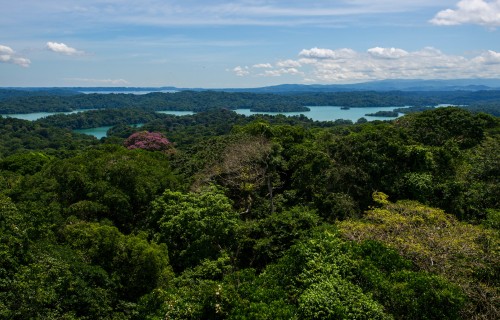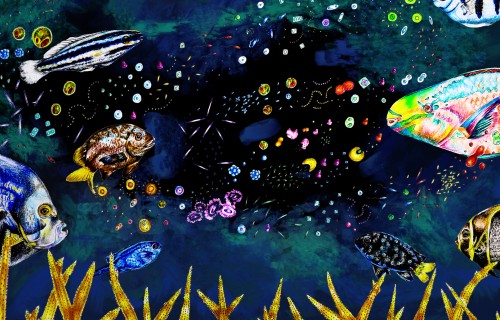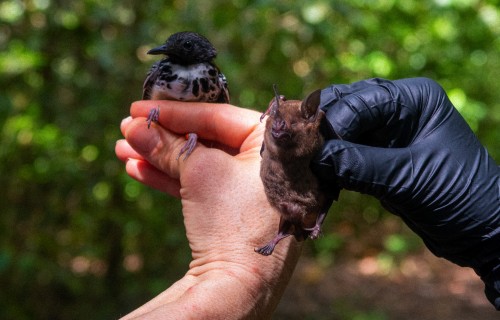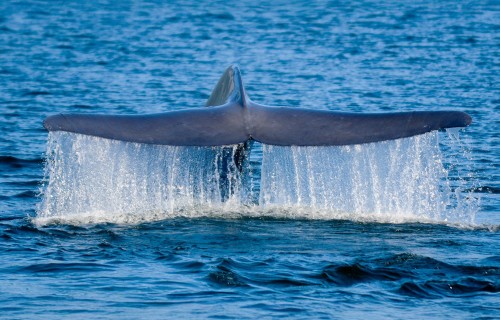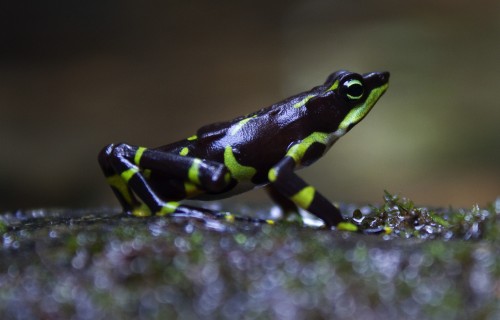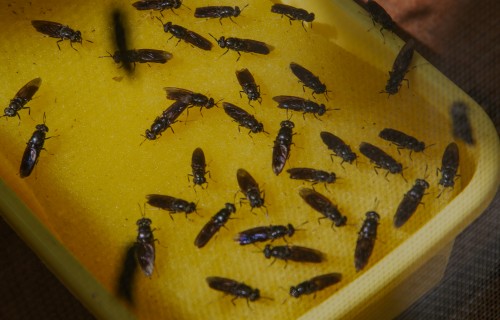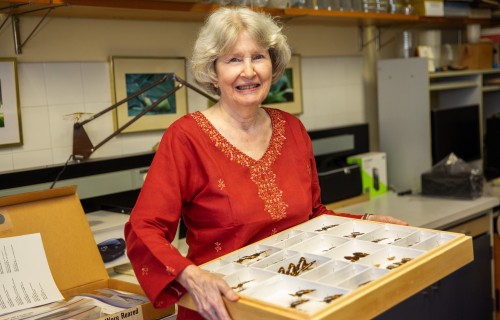Smithsonian science helps understand blue whale migratory and foraging patterns to inform conservation strategies
Safe
science
STRI Director Josh Tewksbury’s
Remarks on Harassment
Text by Joshua Tewksbury
We are all working together to make tropical biology research safe for everyone by eliminating harassment.
December 2021
I want to address the important matter of sexual harassment within the STRI community and underscore our commitment to maintaining a safe work environment for all of us.
I want to thank the survivors who recently shared their stories. We are listening and appreciate the courage it took to step forward. I also acknowledge the pain these incidents have brought us all, regardless of our scientific or non-scientific backgrounds. Harassment is prohibited whether it occurs at a facility or during field work, social events or conferences, and we treat all complaints seriously and with respect. Likewise, retaliation will not be tolerated. Our zero-tolerance policy against harassment stands firm.
We take this very seriously, and we are taking concrete action. My goal is to be as transparent as possible as we move forward. While some changes will be quick, some will occur gradually over a long period of time. We are working on the following specific points and welcome more recommendations through the Contact Us section on the STRI website.
Already in place:
- When my tenure as director began in early July, two former staff members mentioned in previous allegations had already left STRI. I immediately engaged the STRI community by holding town halls and addressing new allegations as the Smithsonian learned of them.
- In early October, we sent a workplace climate survey to the STRI community and 797 people responded. We will share the results with the community when they are available.
- We restructured our Fellow and Intern selection process to reduce conflicts of interests and mitigate power imbalances. Going forward, experts inside and outside of our staff will review all proposals, and rotating committees made up of a mix of both STRI and outside scientists, all of whom have undergone implicit bias training, will make decisions. These committees will never include primary staff scientist collaborators.
- Our commitment to prioritizing the safety and protection of all scientists, students and visitors residing and working at our research sites and locations is rock solid – locks on doors, designated resource contacts at every facility, and an outward- facing, clearly visible Support Resources webpage outlining information to ensure clarity in reporting concerns as well as anti-harassment resources available to anyone.
- Clear expectations of conduct for everyone who comes to STRI are now available. We are instituting a policy to ensure everyone working at STRI, and everyone coming to STRI for research and study, actively agrees to these codes of conduct.
- We are working internally at STRI and Smithsonian-wide, and with outside groups such as ADVANCEGeo and Building a Better Fieldwork Future programs, to support anti-harassment, implicit bias and bystander training for STRI staff and visitors.
- STRI no longer requires staff scientist sponsorship or endorsement as a precondition for doing research at STRI or using our research facilities. From now on, we will always provide our Interns and Fellows with multiple staff-science contact points to support their research and diffuse power dynamics.
- Our Scientific Council – the leading science leadership body in STRI – is now led by women.
- Our current code of conduct calls for full disclosure if any staff/employee has a consensual relationship with any other community member.
- Our Human Resources Office now reports to our Deputy Director, Dr. Oris Sanjur.
But there is much, much more to do. First, STRI science leadership must become more diverse and equitable. We are committed to making that happen. Today, only 26% (9 of 34) of our active staff scientists are female, and only 26% come from tropical countries. Watch these numbers going forward. On the other hand, STRI is easily the most culturally diverse unit of the Smithsonian. Of 380 total employees (35% women), 90% are from tropical countries.
The change is not just about ratios, however. Science at STRI and elsewhere is still built largely on the individual lab model. It is time for a course correction and we aim to lead. We are committed to this at STRI. We will build more diverse, and equitable teams to tackle the major scientific challenges we face in the tropics. This approach will produce better science and create a stronger and more inclusive culture.
Thank you all for your commitment and support for this process as we create a new future.
Joshua Tewksbury




